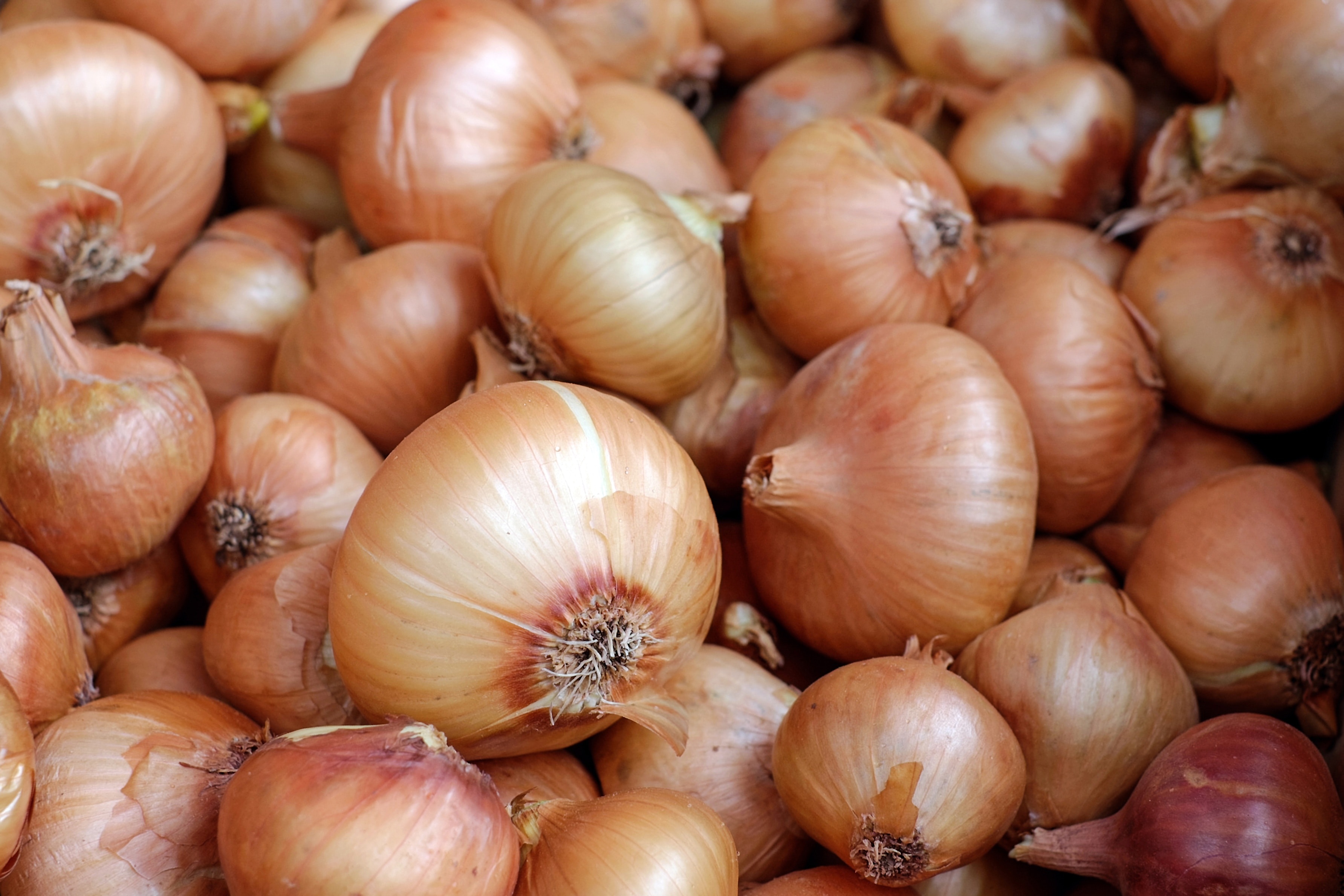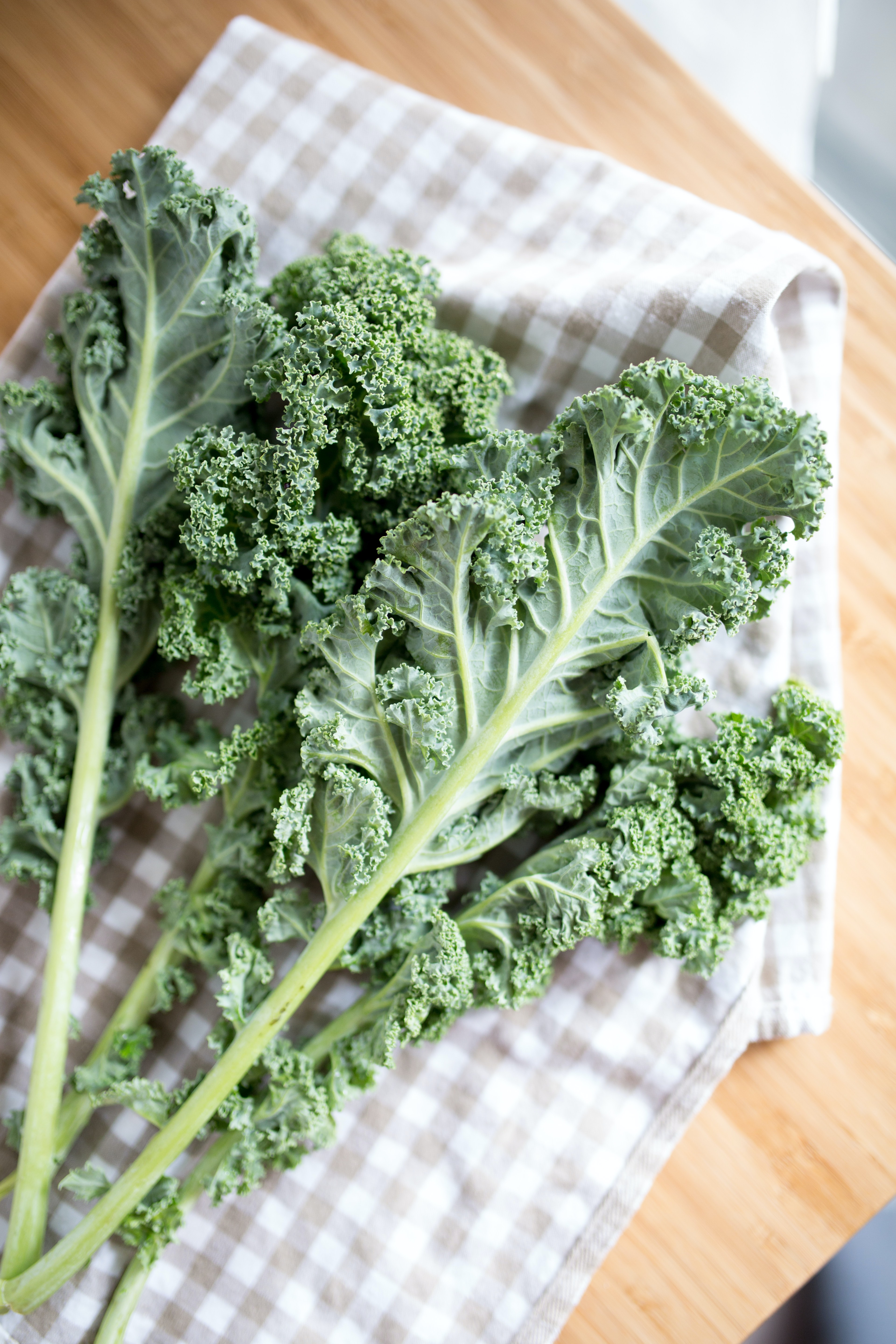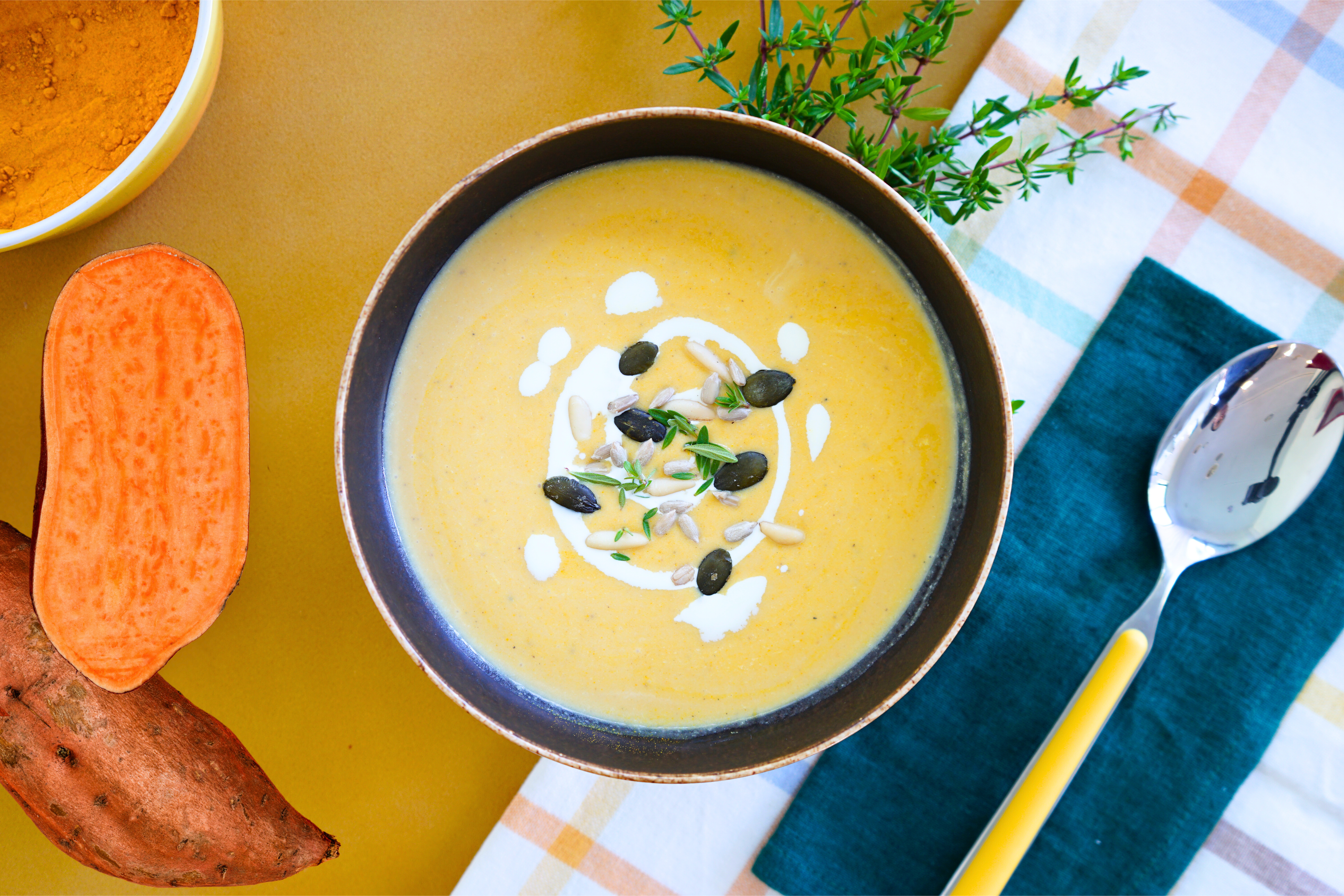Onions: what are the benefits?

What's underneath all of those layers? This vegetable, one of the most widely consumed in Switzerland (an average of 5 kg per capita per year), is full of surprises. Find out more about the history and benefits of onions, plus an easy recipe to make the most of them. We hope it won't bring a tear to your eyes!
Source: SwissFoodAccademy
Are onions a vegetable ?
Yes, onions are vegetables. They belong to the family of Alliums, which also includes garlic, asparagus, leeks, shallots and chives.
Some Alliums are harvested in summer and others in autumn, but onions keep very well, so you can enjoy them year round.
In fields, onions can be distinguished by their elongated, vertical leaves. These young onion leaves can also sometimes be used to flavour dishes.
The history of onions
According to historians, onions originated in the Near East, more precisely in Iran, over 5,000 years ago. They were quickly cultivated and already widely consumed in ancient times. In fact, references to onions can already be found in the writings of Greek and Latin authors, proclaiming their good qualities.
The vegetable gradually arrived in Europe via the Romans and became widespread in the Middle Ages, where it was used as a staple food by peasants and in medicinal recipes, notably to treat warts and typhoid. At the time, the upper classes considered onions to be less noble because they came from the earth.
Today, this small, round vegetable can be found almost everywhere in the world (from tandoori chicken, to halloumi salad) and is one of the most widely used flavourings, along with salt and pepper. It is eaten raw, simmered, braised, fried, grilled or stuffed. It owes its popularity not only to its taste, but also to the many varieties it comes in, the ease with which it can be grown and preserved, and the fact that everyone in the food chain can enjoy it!
In Switzerland, the city of Bern puts onions front and centre with its annual onion market in November. According to legend, the market has existed since 1405, when a fire threatened Bern. The fire was extinguished thanks to the help of their neighbours in Fribourg, who since that year have been allowed to come and sell their onions once a year in the capital. At the market, you'll not only find onions (over 50 tonnes of them), but also every conceivable onion dish and hot wine!
Source: Alimentarium
The benefits of onions
Onions are much more than just a simple ingredient in the kitchen, they are a nutritional treasure trove. Rich in nutrients, and trace minerals onions are a great tool for boosting well-being.
Firstly, their high selenium content, absorbed from the soil, gives onions beneficial antioxidant properties, while selenium also boosts our immune system. Red and yellow onion varieties stand out for containing up to 8 times more selenium than their counterparts. Plus, these bulbs contain quercetin, a powerful anti-inflammatory.
Onions are also a rich source of calcium, essential for maintaining healthy bones. Added to this is a generous amount of vitamin C, which is essential for over a hundred processes in our bodies, in particular to support our immune system. Onions are also low in calories because they're full of water, so you can eat lots of them without worrying about going over your daily recommended calorie intake and ruining your weight-loss meals!
100g onion contains:
| Nutrients | Average amount |
| Calories | 40 |
| Proteins | 1.1g |
| Carbohydrates | 6.25g |
| Fats | 0.62g |
| Fibre | 1.7g |
Source : PasseportSanté
The downsides of onions
For people with sensitive stomachs, irritable bowel syndrome or on a FODMAP diet, onions should be avoided as they contain fructose and sulphur compounds that ferment in the stomach and are therefore difficult to digest.
However, for some other people who have no digestive problems, onions have a positive effect on digestion because they contain good bacteria that help contribute to a healthy intestinal microbiome.
Why do you cry when you chop onions?
This intriguing phenomenon is due to the presence of a molecule called hip propanethial-S-oxide in onion cells. When the knife blade cuts the onion, these compounds react with the enzymes to form a gas which irritates your eye balls. As a result this triggers a reaction from the lacrimal glands to protect the eyes by crying aways the chemicals. Although this reaction is involuntary and often difficult to manage, it is a sign of just how powerful the humble onion can be.
Here are a few tips to stop you bursting into tears when you look at your onion:
- First of all, chilling the onion reduces the volatility of the irritating molecule, so if you can put your onion in the freezer for 10 minutes before cutting it, that should help.
- Secondly, the molecule responsible for our tears is water-soluble, so peeling your onion while running water next to it or cutting it in a basin will prevent the gas getting into your eyes. You can also light a small candle next to you, which will attract the gas.
- Finally, you can also opt for some funky goggles, to act as a physical barrier to the gas, and to give you some style when you're cutting!

Our easy onion soup recipe
After all this reading about the fabulous vegetable that is the onion, you should be keen to cook it. Here's our cosy recipe from Powermeals featuring onions: onion soup!
Ingredients:
- 4 onions, thinly sliced
- 2 tablespoons butter
- 1 tablespoon sunflower oil
- 1 tablespoon flour
- 1 cup white wine
- 8 cups vegetable stock
- Salt and pepper to taste
Preparation
-
Melt the butter with the oil in a large saucepan over medium heat. Add the onions and cook slowly until golden and caramelised, this may take around 25 to 30 minutes.
-
Sprinkle the flour over the onions and mix well to coat.
-
Pour the white wine into the pan and stir well, making sure to scrape the bottom to catch the juices.
-
Add the vegetable stock, salt and pepper. Bring to the boil, then reduce the heat and simmer for 30 minutes.
-
Serve hot and enjoy this delicious homemade onion soup!
Top tip: heat pieces of baguette in the oven with cheese on top, then dip them in the onion soup - it's the perfect combination!

About Powermeals
At Powermeals every day can be an onion feast! We deliver fresh, chef-cooked meals all over Switzerland. Discover our onion soup and many other recipes on our menu. Of course, we also have a wide selection of onion-free meals for anyone who doesn't find onions to their taste or has trouble digesting them.


